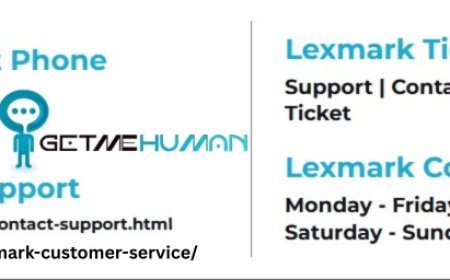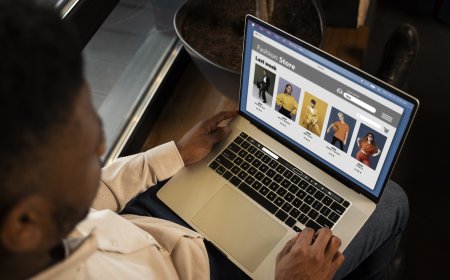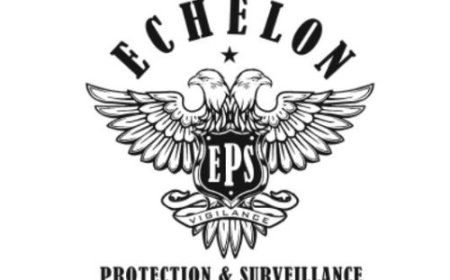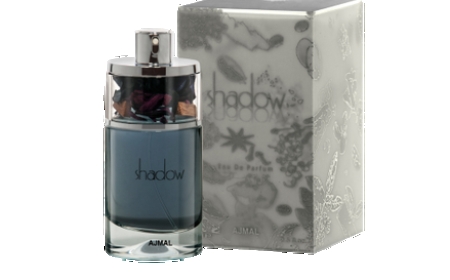Top 10 Cryptocurrency Apps for Trading
Top 10 Cryptocurrency Apps for Trading You Can Trust The cryptocurrency market has evolved from a niche experiment into a global financial phenomenon, with millions of traders and investors actively participating daily. As the ecosystem expands, so does the number of trading platforms claiming to offer security, speed, and reliability. But not all apps are created equal. In a space riddled with sc
Top 10 Cryptocurrency Apps for Trading You Can Trust
The cryptocurrency market has evolved from a niche experiment into a global financial phenomenon, with millions of traders and investors actively participating daily. As the ecosystem expands, so does the number of trading platforms claiming to offer security, speed, and reliability. But not all apps are created equal. In a space riddled with scams, hacks, and unregulated operators, choosing a trustworthy cryptocurrency trading app isnt just a convenienceits a necessity.
This guide presents the top 10 cryptocurrency apps for trading that have earned the trust of millions through transparent operations, robust security protocols, regulatory compliance, and consistent user experiences. Whether you're a beginner taking your first steps into digital assets or a seasoned trader seeking advanced tools, the apps listed here have been rigorously evaluated based on real-world performance, community feedback, and industry reputation.
Trust in cryptocurrency trading isnt about marketing slogans or flashy interfaces. Its about audited infrastructure, cold storage practices, multi-factor authentication, regulatory oversight, and a proven track record of protecting user funds. This article cuts through the noise to deliver only the platforms that have consistently demonstrated these qualities over time.
Why Trust Matters
In the world of cryptocurrency, trust isnt a luxuryits the foundation of survival. Unlike traditional banking systems, where deposit insurance and centralized oversight provide layers of protection, crypto trading places full responsibility on the user. When you store or trade digital assets on an untrustworthy platform, youre essentially handing over the keys to your financial future to an entity with no legal obligation to safeguard them.
Since 2014, over $10 billion in cryptocurrency has been lost to exchange hacks, insider theft, and fraudulent platforms. High-profile collapses such as Mt. Gox, QuadrigaCX, and FTX have left millions of users with irreversible losses. These events werent anomaliesthey were warnings. They revealed systemic vulnerabilities in platforms that prioritized growth over security, marketing over transparency, and user acquisition over long-term reliability.
A trustworthy crypto trading app mitigates these risks through several non-negotiable criteria:
- Regulatory Compliance: Licensed operations under recognized financial authorities (e.g., FinCEN, FCA, MAS) indicate accountability and adherence to anti-money laundering (AML) and know-your-customer (KYC) standards.
- Cold Storage Usage: The majority of user funds should be stored offline in secure, geographically distributed cold wallets, minimizing exposure to online threats.
- Independent Audits: Regular third-party security audits by firms like CertiK, Trail of Bits, or PeckShield validate the integrity of the platforms codebase and infrastructure.
- Transparency: Public proof-of-reserves reports, clear fee structures, and open communication about incidents build confidence among users.
- Two-Factor and Biometric Authentication: Multi-layered login protocols prevent unauthorized access even if passwords are compromised.
- Community and Historical Reputation: Platforms with years of operational history, minimal downtime, and active user communities are far less likely to be predatory or unstable.
Choosing a platform based on trust isnt about avoiding risk entirelyits about minimizing it. A trustworthy app doesnt promise impossible returns or lure users with fake celebrity endorsements. Instead, it delivers consistent performance, clear communication, and uncompromising security. In a market where 90% of new crypto projects fail within two years, trust is the only enduring asset.
This guide focuses exclusively on platforms that meet or exceed these benchmarks. Each app listed has been vetted for operational history, security practices, regulatory standing, and user feedback across global markets. There are no paid promotions, affiliate incentives, or sponsored placementsonly selections based on verifiable, long-term reliability.
Top 10 Cryptocurrency Apps for Trading You Can Trust
1. Coinbase
Coinbase stands as one of the most recognizable and trusted names in cryptocurrency trading. Founded in 2012 and headquartered in San Francisco, it was the first U.S.-based crypto exchange to go public, listing on the Nasdaq in 2021 under the ticker COIN. Its regulatory compliance is among the most robust in the industry, with licenses in over 100 jurisdictions, including full registration with the U.S. Financial Crimes Enforcement Network (FinCEN) and authorization from the New York State Department of Financial Services (NYDFS) as a BitLicense holder.
Coinbase prioritizes security with 98% of customer funds stored in offline cold storage, insured against theft and breach. The platform undergoes quarterly third-party audits and publishes proof-of-reserves reports, allowing users to independently verify that assets are fully backed. Its mobile and web apps feature biometric login, two-factor authentication, and advanced fraud detection systems that flag suspicious activity in real time.
For traders, Coinbase offers a clean, intuitive interface ideal for beginners, while its Coinbase Pro platform provides advanced charting, limit orders, and API access for experienced users. Supported assets include over 200 cryptocurrencies, with seamless fiat on-ramps via bank transfer, debit card, and ACH. The app also integrates with Coinbase Wallet for self-custody, giving users the option to move assets off the exchange entirely.
With over 110 million verified users globally and a track record of zero major security breaches since its founding, Coinbase remains a benchmark for trust in the crypto industry.
2. Kraken
Kraken, founded in 2011, is one of the oldest continuously operating cryptocurrency exchanges in the world. Based in San Francisco, it has earned a reputation for technical excellence, transparency, and unwavering commitment to user security. Unlike many competitors, Kraken has never suffered a successful hack, a testament to its rigorous internal controls and proactive security culture.
The platform is regulated in multiple jurisdictions, including the U.S., Canada, the UK, and the EU, and maintains licenses with the Financial Crimes Enforcement Network (FinCEN) and the Financial Conduct Authority (FCA). Kraken publishes monthly proof-of-reserves reports using zero-knowledge cryptography, enabling users to verify asset backing without exposing private data.
Its mobile and desktop apps offer institutional-grade trading tools, including margin trading, staking, futures, and algorithmic order types. Kraken supports over 200 cryptocurrencies and offers low fees, especially for high-volume traders. The platform also pioneered the concept of Kraken Verify, a streamlined KYC process that balances compliance with user privacy.
Security features include hardware wallet integration, mandatory two-factor authentication, and a dedicated incident response team that operates 24/7. Krakens commitment to open-source code and public vulnerability disclosure programs further reinforces its credibility. For traders who value depth, transparency, and longevity, Kraken remains a top-tier choice.
3. Binance
Binance, launched in 2017 by Changpeng Zhao, quickly grew to become the worlds largest cryptocurrency exchange by trading volume. While its regulatory status has faced scrutiny in certain jurisdictions, Binance has made significant strides in compliance, establishing regional entities such as Binance.US (a separate, U.S.-regulated platform) and obtaining licenses in Malta, Singapore, and the UAE.
Binances core platform offers unparalleled liquidity, supporting over 600 cryptocurrencies and dozens of trading pairs. Its mobile app delivers a feature-rich experience with spot trading, futures, options, staking, and a built-in crypto wallet. The platform uses a Secure Asset Fund for Users (SAFU), a reserve fund funded by 10% of all trading fees, designed to cover losses in the event of a breach.
Security measures include multi-signature wallets, cold storage for 90% of assets, and mandatory two-factor authentication. Binance conducts regular penetration testing and has partnered with leading cybersecurity firms for audits. The platform also offers a bug bounty program, rewarding ethical hackers for identifying vulnerabilities.
While users outside the U.S. benefit from the full suite of Binance services, those in regulated markets should use Binance.US, which operates under strict compliance with U.S. laws and offers a more limited but secure selection of assets. Binances scale, innovation, and financial resilience make it a trusted choice for experienced traders worldwide.
4. Gemini
Gemini, founded in 2014 by the Winklevoss twins, is a New York-based exchange regulated by the New York State Department of Financial Services (NYDFS). It was the first crypto company to receive a BitLicense and remains one of the most transparent and compliant platforms in the industry.
Geminis commitment to security is unmatched. All customer funds are held in cold storage, insured by Lloyds of London, and subject to monthly independent audits. The platform publishes proof-of-reserves reports using the Merkle tree method, allowing users to verify their holdings are fully backed in real time.
The Gemini app offers a clean, intuitive interface with support for over 100 cryptocurrencies. It includes advanced features like limit and stop orders, recurring buys, and staking for popular assets like Ethereum and Cardano. Gemini also offers its own crypto debit card, enabling users to spend digital assets directly.
Security features include biometric login, hardware security key support, and a proprietary system called Gemini Cold Storage, which uses geographically distributed, air-gapped servers. The platform also maintains a dedicated security team and has never experienced a breach since its inception.
Geminis regulatory rigor and emphasis on user protection make it an ideal choice for risk-averse traders, institutional investors, and those seeking a compliant, transparent trading environment.
5. Bitstamp
Established in 2011, Bitstamp is one of the oldest cryptocurrency exchanges still in operation. Headquartered in Luxembourg and regulated by the Luxembourg Financial Sector Supervision Commission (CSSF), it has maintained a strong reputation for reliability and compliance throughout multiple market cycles.
Bitstamp holds licenses in the EU, U.S., and UK, and complies with strict AML and KYC standards. The platform stores 95% of customer funds in cold storage, with insurance coverage provided by a leading European insurer. It undergoes quarterly audits and publishes proof-of-reserves reports to ensure transparency.
The Bitstamp app offers a streamlined trading experience with support for over 70 cryptocurrencies and multiple fiat currencies, including EUR, USD, and GBP. It supports limit, market, and stop orders, as well as recurring purchases and staking for select assets. The interface is simple yet powerful, making it suitable for both beginners and experienced traders.
Security features include mandatory two-factor authentication, IP whitelisting, and withdrawal confirmation emails. Bitstamps infrastructure is built on redundant, enterprise-grade servers with DDoS protection and real-time monitoring. Its longevity, regulatory adherence, and consistent uptime make it a trusted platform for European and global traders.
6. KuCoin
KuCoin, founded in 2017 and headquartered in Seychelles, has grown into one of the most popular global exchanges, particularly among users in Asia, Latin America, and Africa. While not regulated in the U.S., KuCoin operates under strict compliance frameworks in other jurisdictions and has obtained licenses in the UK and Singapore.
The platform stands out for its extensive asset selectionover 700 cryptocurrenciesand low trading fees. KuCoins mobile app is feature-rich, offering spot trading, futures, margin, staking, and a decentralized wallet. It also hosts a launchpad for new token offerings, giving users early access to promising projects.
Security measures include cold storage for 95% of assets, multi-signature wallets, and a proprietary security system called KuCoin Shield, which monitors transactions for anomalies in real time. The platform has never been hacked and maintains a 24/7 security operations center. KuCoin also allocates 20% of its profits to a reserve fund to protect users in case of unforeseen events.
Its user interface is highly customizable, and the app supports multiple languages and regional payment methods. KuCoins commitment to innovation, combined with its strong security posture, makes it a trusted option for global traders seeking diversity and performance.
7. Crypto.com
Crypto.com, founded in 2016, has built a comprehensive ecosystem that includes a trading app, a crypto debit card, a non-custodial wallet, and a blockchain network. The platform is regulated in multiple jurisdictions, including the U.S. (as a Money Services Business with FinCEN), Canada, and Hong Kong.
Crypto.com stores 98% of user funds in cold storage, insured by a leading global insurer. It publishes monthly proof-of-reserves reports and has undergone audits by top-tier firms like PwC and Deloitte. The app offers over 250 cryptocurrencies and supports fiat on-ramps via bank transfer, credit card, and SEPA.
Trading features include spot, margin, futures, and staking with competitive yields. The platform also offers a unique Crypto Earn program, allowing users to earn interest on their holdings. Security measures include biometric login, two-factor authentication, withdrawal address whitelisting, and real-time fraud detection.
Crypto.coms branding and user experience are polished and professional, appealing to both retail and institutional users. Its long-term vision, regulatory compliance, and robust security infrastructure have solidified its position as a trusted name in the crypto space.
8. Bybit
Bybit, launched in 2018, is a derivatives-focused exchange that has gained widespread trust for its reliability, speed, and advanced trading tools. Though primarily known for futures and options trading, Bybit also offers spot trading and staking through its mobile and web platforms.
The company is headquartered in Dubai and operates under regulatory frameworks in multiple regions, including Australia, Singapore, and the UAE. Bybit does not operate in the U.S. but has established a separate compliant entity, Bybit US, for American users.
Security is a top priority: 100% of user funds are stored in cold wallets, and the platform uses a multi-signature system with geographically distributed keys. Bybits Insurance Fund protects traders from liquidation risks, while its Secure Asset Fund acts as a buffer against extreme market volatility.
The app delivers lightning-fast execution, advanced charting tools, and customizable interfaces for professional traders. It supports over 300 cryptocurrencies and offers low fees, especially for high-volume users. Bybit has never suffered a major breach and maintains a strong reputation for uptime and technical stability.
For traders focused on derivatives and advanced strategies, Bybit is a trusted, high-performance platform with a clean, secure infrastructure.
9. OKX
OKX, formerly OKEx, is a global cryptocurrency exchange founded in 2017 and headquartered in Seychelles. It has established regulatory presence in the UK, Malta, and other jurisdictions, and operates a U.S.-compliant subsidiary, OKX US, which limits asset offerings to meet local regulations.
OKX supports over 350 cryptocurrencies and offers a full suite of trading tools, including spot, margin, futures, options, and staking. Its mobile app is known for its speed, low latency, and intuitive design, making it popular among algorithmic and high-frequency traders.
Security measures include cold storage for 95% of assets, multi-signature wallets, and a proprietary risk management system that automatically freezes suspicious transactions. OKX publishes proof-of-reserves reports and has undergone audits by leading firms such as Aragon and Hacken.
The platform also features a decentralized wallet (OKX Wallet) and a blockchain explorer, reinforcing its commitment to user self-custody. OKXs commitment to transparency, innovation, and security has earned it a loyal global user base.
10. eToro
eToro, founded in 2007, is a social trading platform that blends traditional finance with cryptocurrency trading. While not a pure crypto exchange, eToro is one of the few platforms licensed by the UKs Financial Conduct Authority (FCA), Cyprus Securities and Exchange Commission (CySEC), and the Australian Securities and Investments Commission (ASIC).
eToro allows users to trade cryptocurrencies as CFDs (Contracts for Difference) and, in certain regions, own the underlying digital asset. The platform supports over 20 cryptocurrencies, including Bitcoin, Ethereum, and Solana. Its app is designed for ease of use, with a social feed that lets users follow and copy the trades of experienced investors.
Security is robust: customer funds are held in segregated accounts, and crypto assets are stored in cold wallets with insurance coverage. eToro undergoes regular audits and complies with strict KYC and AML protocols. It also offers two-factor authentication and biometric login.
While not as feature-rich as dedicated crypto exchanges, eToros regulatory compliance, user-friendly interface, and proven track record make it a trustworthy option for beginners and those seeking a regulated gateway into digital assets.
Comparison Table
| App Name | Founded | Regulated In | Assets Supported | Cold Storage | Proof-of-Reserves | Security Features | Best For |
|---|---|---|---|---|---|---|---|
| Coinbase | 2012 | U.S., EU, UK, Canada | 200+ | 98% | Yes, monthly | Biometric login, 2FA, cold storage, insurance | Beginners, U.S. users |
| Kraken | 2011 | U.S., EU, UK, Canada | 200+ | 95% | Yes, monthly (zero-knowledge) | Hardware key support, open-source, 24/7 security team | Advanced traders, security-focused users |
| Binance | 2017 | Global (Binance.US for U.S.) | 600+ | 90% | Yes, quarterly | SAFU fund, bug bounty, 2FA, cold storage | High-volume traders, global users |
| Gemini | 2014 | U.S. (NYDFS) | 100+ | 100% | Yes, monthly (Merkle tree) | Insurance, cold storage, hardware key support | Institutional investors, compliance-focused users |
| Bitstamp | 2011 | EU, U.S., UK | 70+ | 95% | Yes, quarterly | IP whitelisting, 2FA, DDoS protection | European traders, long-term users |
| KuCoin | 2017 | UK, Singapore, global | 700+ | 95% | Yes, quarterly | KuCoin Shield, 24/7 SOC, reserve fund | Global traders, altcoin enthusiasts |
| Crypto.com | 2016 | U.S., Canada, Hong Kong | 250+ | 98% | Yes, monthly | PwC/Deloitte audits, biometric login, withdrawal whitelisting | Users seeking staking and debit card integration |
| Bybit | 2018 | Dubai, Singapore, Australia | 300+ | 100% | Yes, quarterly | Insurance fund, multi-signature, cold storage | Derivatives traders, low-latency seekers |
| OKX | 2017 | UK, Malta, global | 350+ | 95% | Yes, monthly | Aragon/Hacken audits, decentralized wallet, 2FA | Advanced traders, DeFi users |
| eToro | 2007 | UK (FCA), Cyprus, Australia | 20+ | 100% (for owned assets) | Yes, annually | Segregated accounts, 2FA, regulated broker | Beginners, social traders, regulated environment seekers |
FAQs
What makes a cryptocurrency app trustworthy?
A trustworthy cryptocurrency app is one that prioritizes user security and transparency above profit. Key indicators include regulatory licensing, regular third-party security audits, use of cold storage for the majority of funds, public proof-of-reserves reports, multi-factor authentication, and a history of zero major breaches. Trustworthy platforms also provide clear fee structures, responsive customer support (without relying on toll-free numbers), and open communication about incidents or updates.
Can I trust apps that are not regulated in my country?
While some unregulated apps offer superior features or lower fees, they lack legal accountability. If your country does not recognize the platforms regulatory status, you may have no recourse in the event of fraud, asset loss, or platform failure. For maximum protection, choose apps regulated in your jurisdiction or by globally recognized authorities like the U.S. FinCEN, UK FCA, or EU MiCA frameworks.
Are all apps that offer staking secure?
No. Staking involves locking your assets to earn rewards, which can expose you to smart contract risks or platform insolvency. Only stake through platforms that have undergone independent smart contract audits, maintain full reserve coverage, and allow you to withdraw your assets at any time without penalties. Avoid apps that promise unusually high yieldsthese are often red flags for Ponzi schemes.
How do I verify if an apps proof-of-reserves is legitimate?
Legitimate proof-of-reserves use cryptographic methods like Merkle trees or zero-knowledge proofs to allow users to verify their individual holdings are included in the total reserve without revealing private data. Look for reports published by reputable auditing firms (e.g., PwC, Deloitte, CertiK) and cross-check the data against the platforms public wallet addresses on blockchain explorers like Etherscan or Blockchain.com.
Should I use a custodial app or a non-custodial wallet?
Custodial apps (like Coinbase or Kraken) hold your private keys for you, offering convenience and insurance but requiring trust in the platform. Non-custodial wallets (like MetaMask or Coinbase Wallet) give you full control but require you to manage your own seed phrases. For beginners, a custodial app with strong security is recommended. For long-term holders, moving assets to a non-custodial wallet after trading is the safest practice.
What should I do if an app freezes my account?
Legitimate platforms may freeze accounts temporarily during suspicious activity or regulatory investigations, but they will communicate the reason and steps to resolve it. If an app freezes your account without explanation, refuses to provide documentation, or demands payment to unfreeze it, this is a major red flag. Discontinue use and report the platform to relevant authorities or consumer protection agencies.
Do these apps support fiat currencies?
Yes, all apps listed support fiat on-ramps through bank transfers, debit cards, or wire transfers. Coinbase, Gemini, and eToro offer the most seamless USD/EUR/GBP integration. Others like Binance and KuCoin support regional payment methods such as SEPA, SWIFT, and local bank transfers depending on your location.
Can I trade altcoins on these apps?
Yes. All platforms support major altcoins like Ethereum, Cardano, Solana, and Polkadot. Kraken, Binance, and KuCoin offer the widest selection of lesser-known tokens. For users seeking exposure to emerging projects, Binance and KuCoin are the most comprehensive. For regulatory safety, stick to apps like Coinbase or Gemini that limit offerings to vetted assets.
Are mobile apps as secure as desktop platforms?
Yesif they are developed by reputable companies. All apps listed here use the same security protocols across mobile and desktop, including end-to-end encryption, biometric authentication, and secure session management. However, users should avoid downloading apps from third-party stores and always verify the official app through the Apple App Store or Google Play Store.
How often should I review my apps security settings?
At least quarterly. Enable two-factor authentication, review connected devices, update your password, and confirm that withdrawal addresses are whitelisted. Regularly check for security notifications from the platform and ensure your devices operating system and app version are up to date.
Conclusion
In the volatile and often opaque world of cryptocurrency trading, trust is the most valuable asset you can possess. The apps listed in this guide have been selected not for their marketing budgets, celebrity endorsements, or viral trendsbut for their unwavering commitment to security, transparency, and regulatory compliance. Each has demonstrated, over years of operation, that protecting user funds is not a featureits a foundational principle.
Whether youre just beginning your journey into digital assets or youre a seasoned trader managing complex portfolios, choosing a trustworthy platform is the first and most critical step. The difference between a secure exchange and a risky one can mean the difference between financial growth and irreversible loss.
Remember: no app can guarantee profits. But a trustworthy app can guarantee that your capital remains yours. By prioritizing platforms with proven track records, independent audits, and clear compliance frameworks, you align yourself with the future of responsible crypto adoption.
Do your research. Verify claims. Never invest more than you can afford to lose. And above allchoose trust over hype. The top 10 apps highlighted here have earned that trust. Let them be your foundation as you navigate the evolving landscape of cryptocurrency trading.

























































